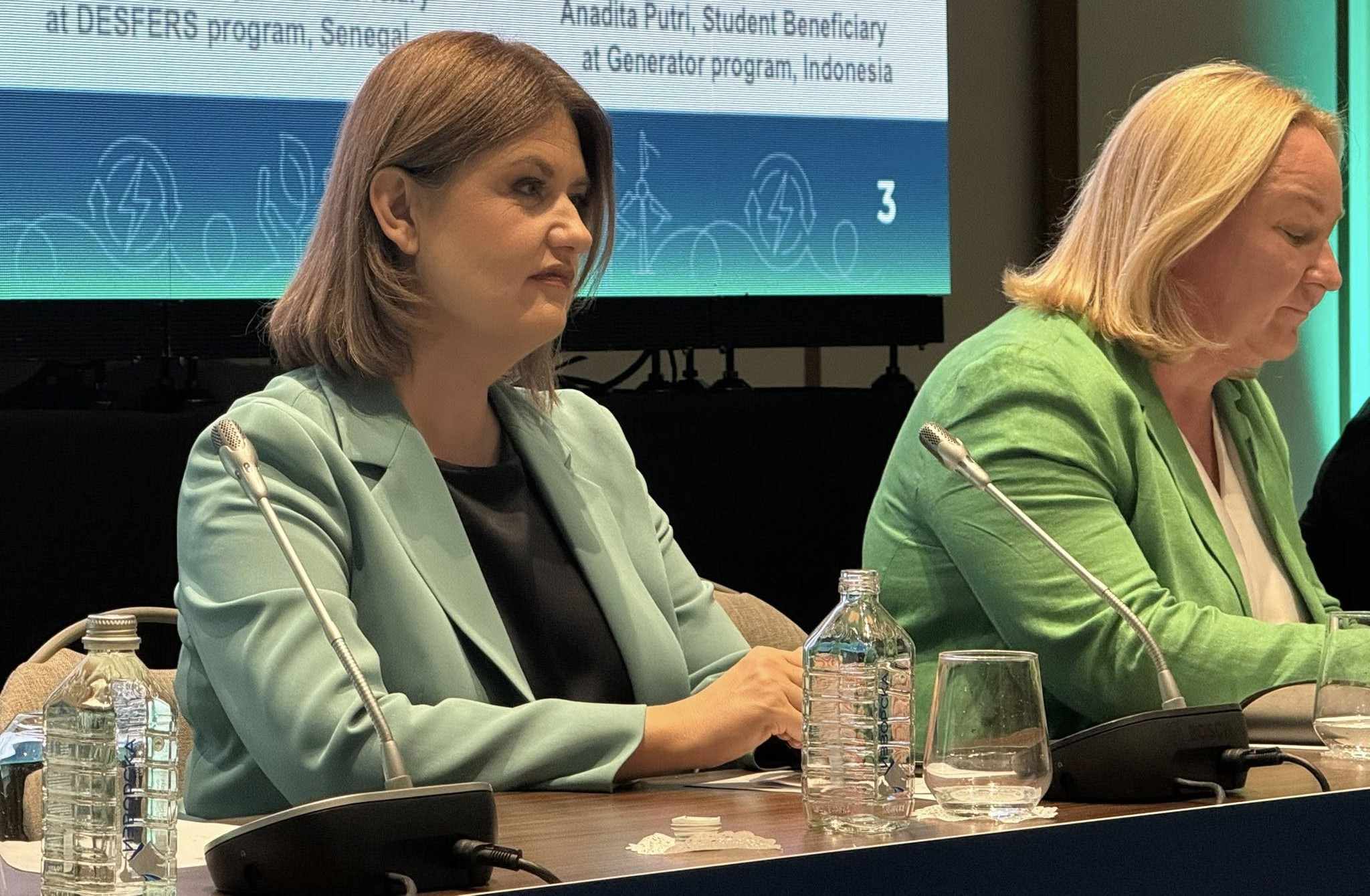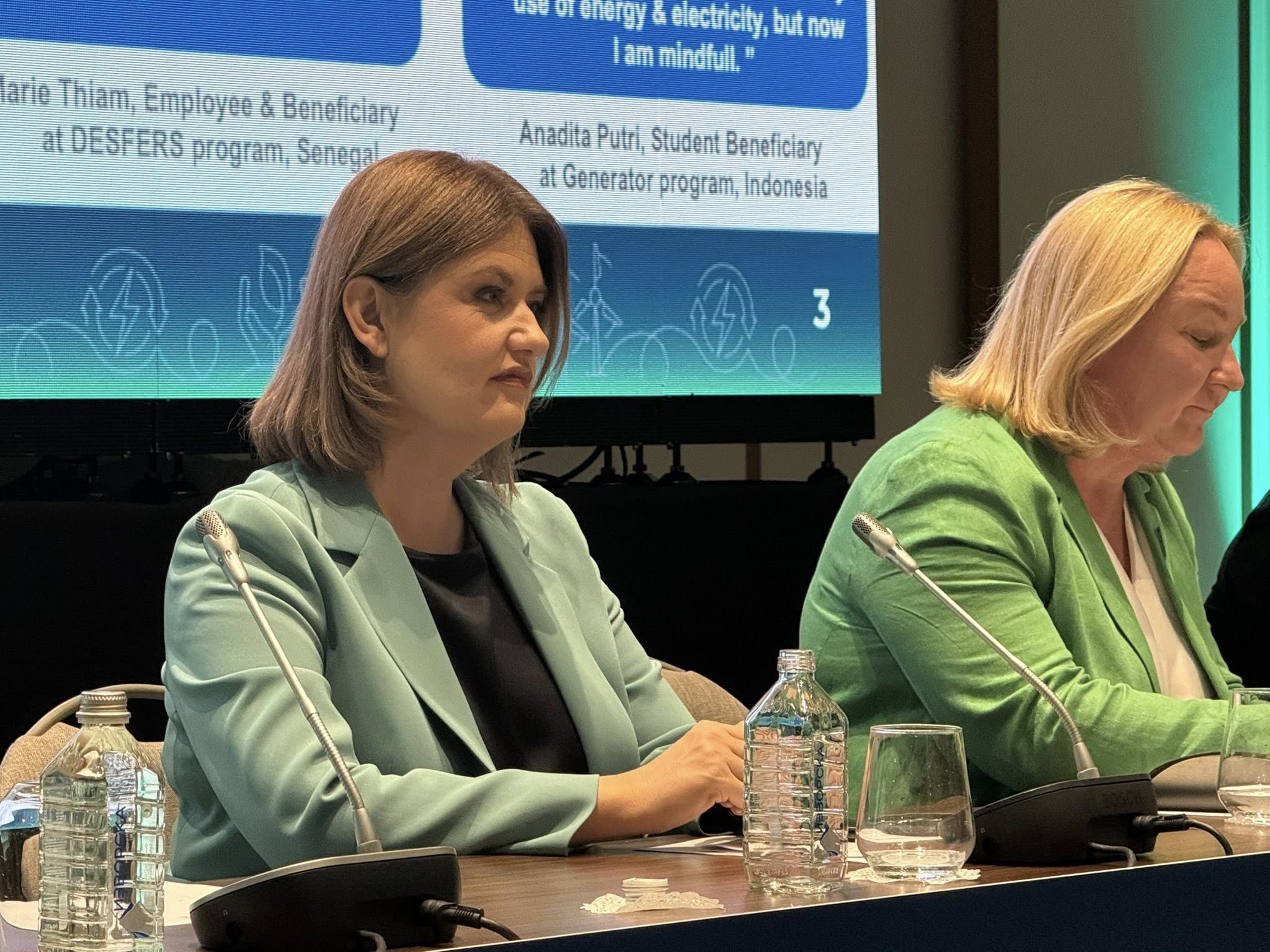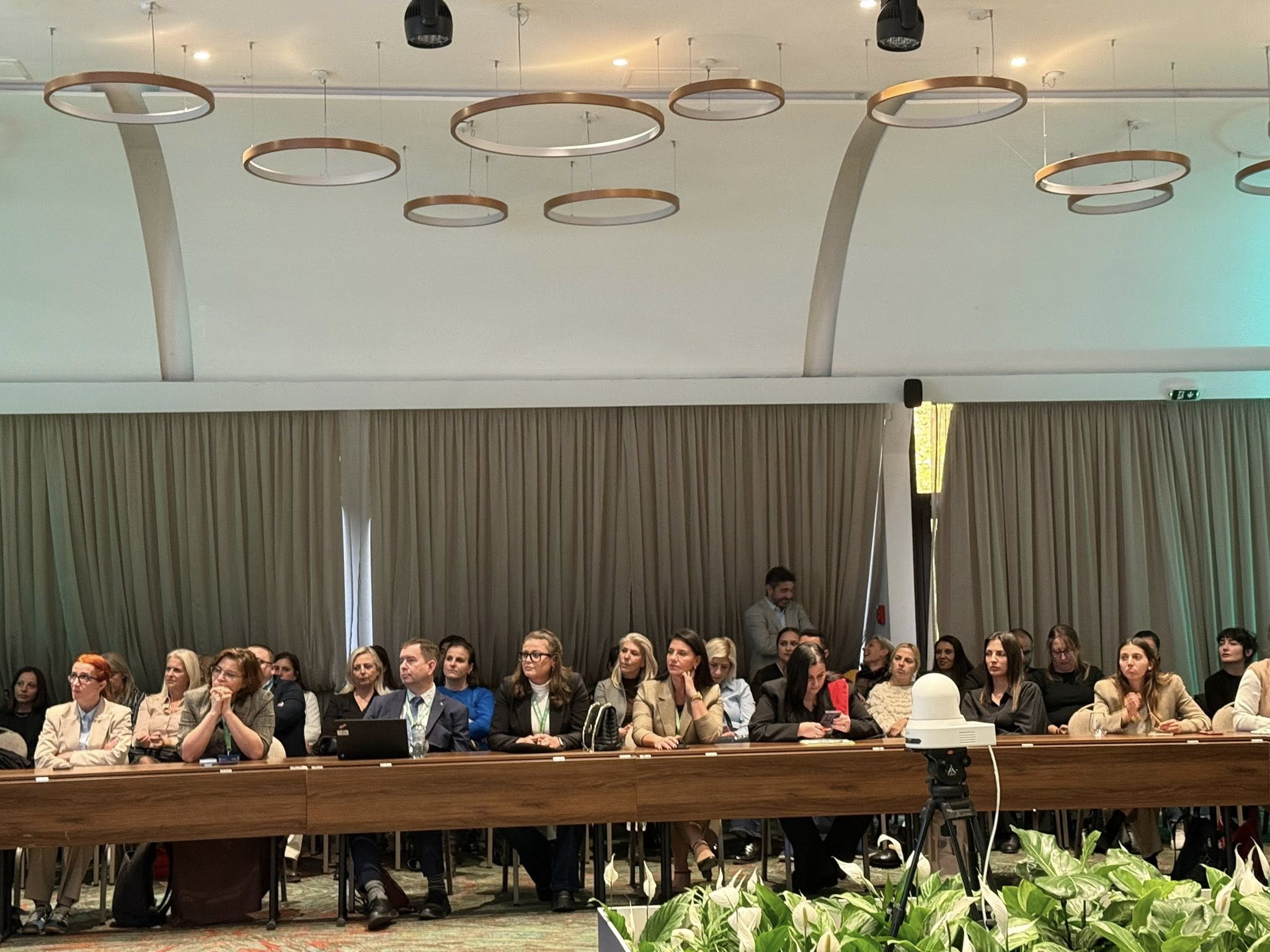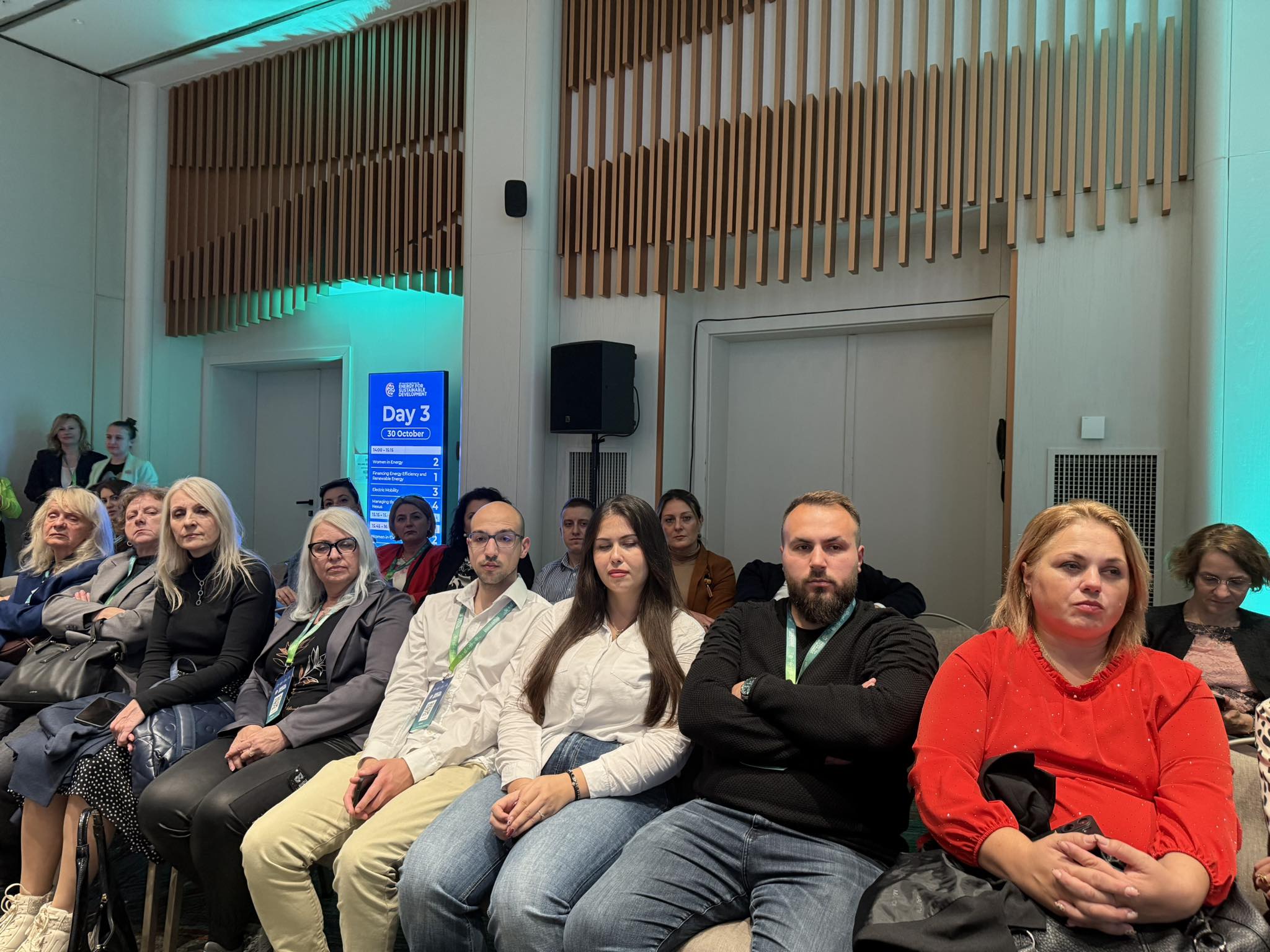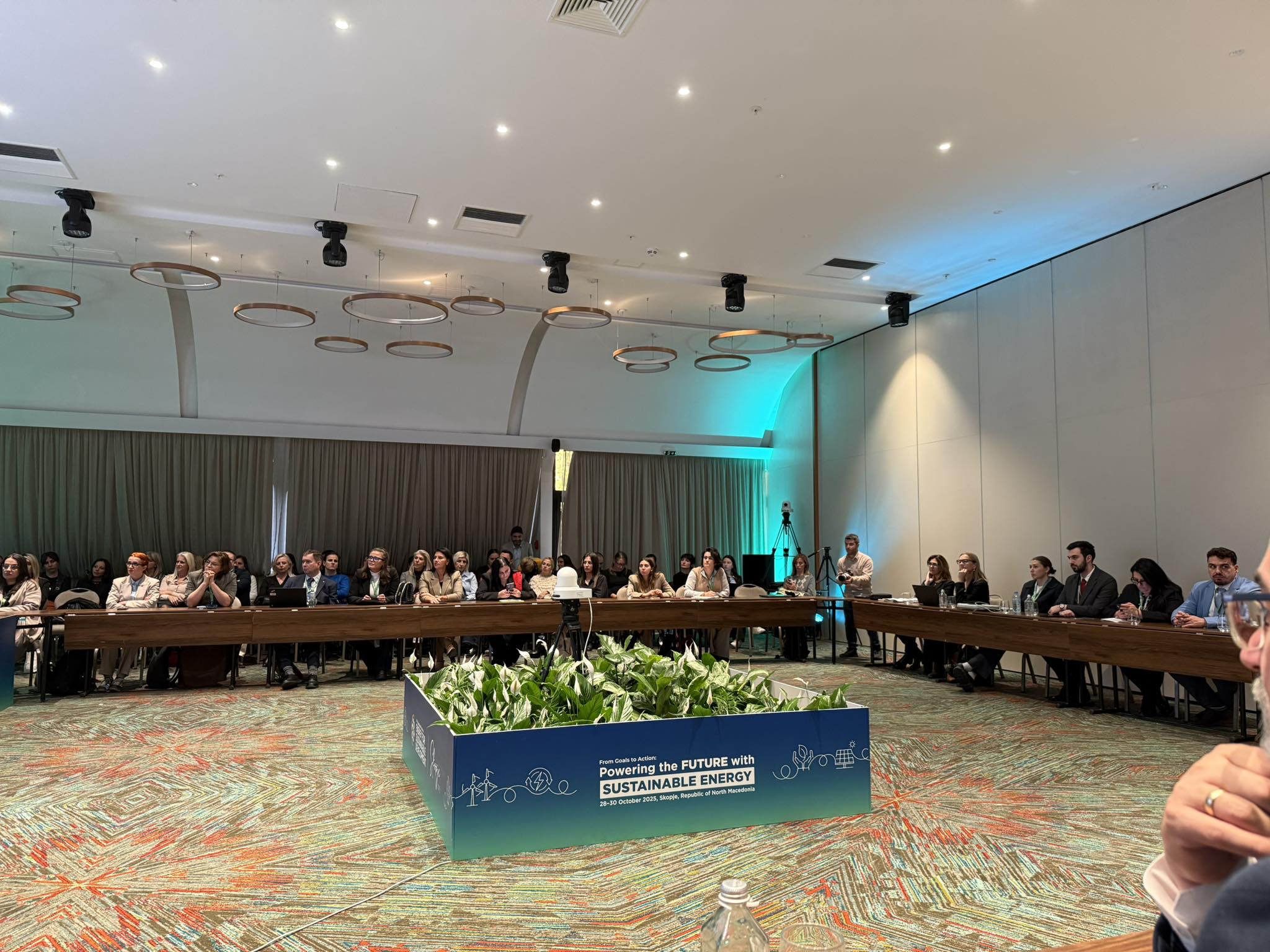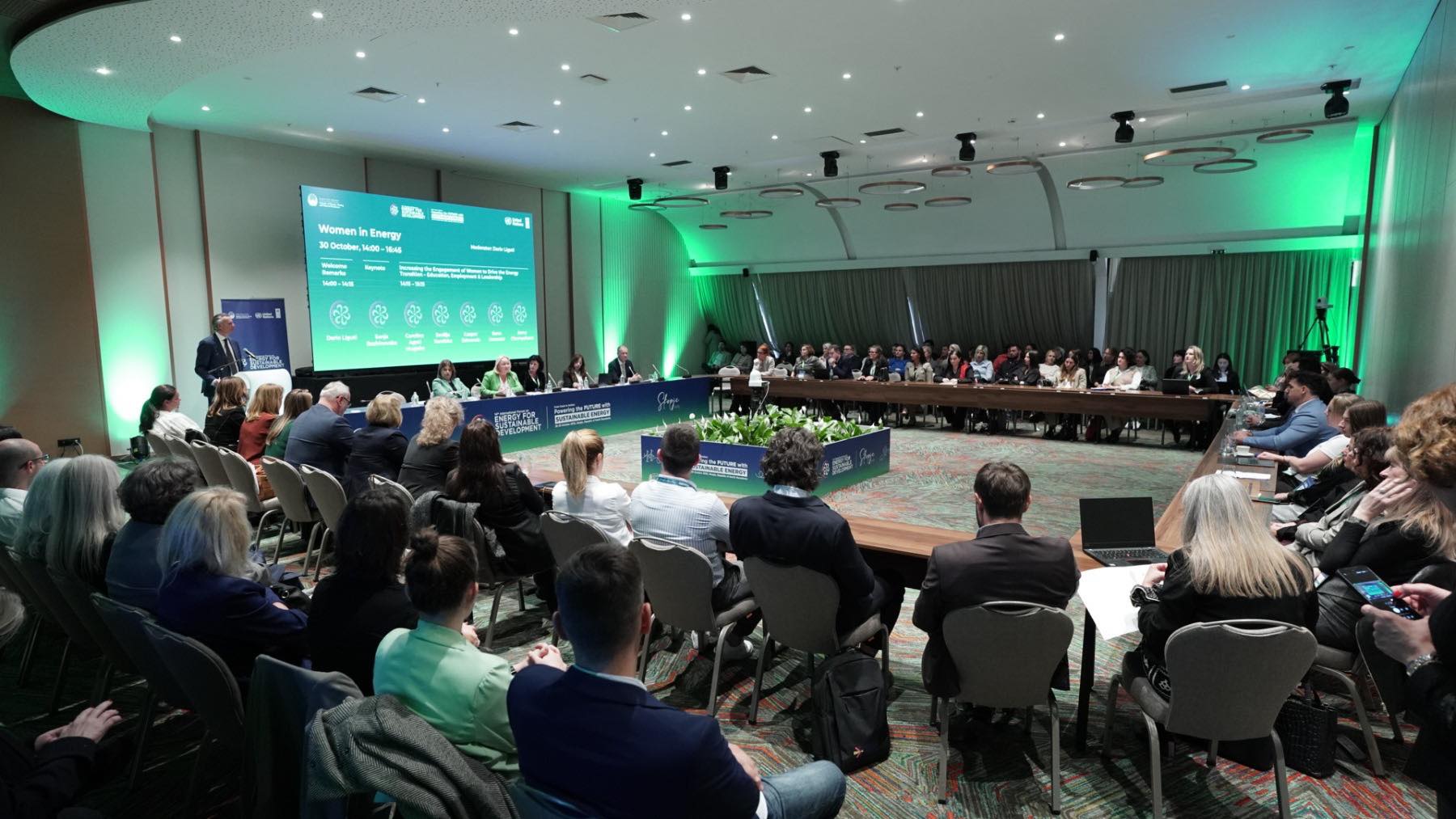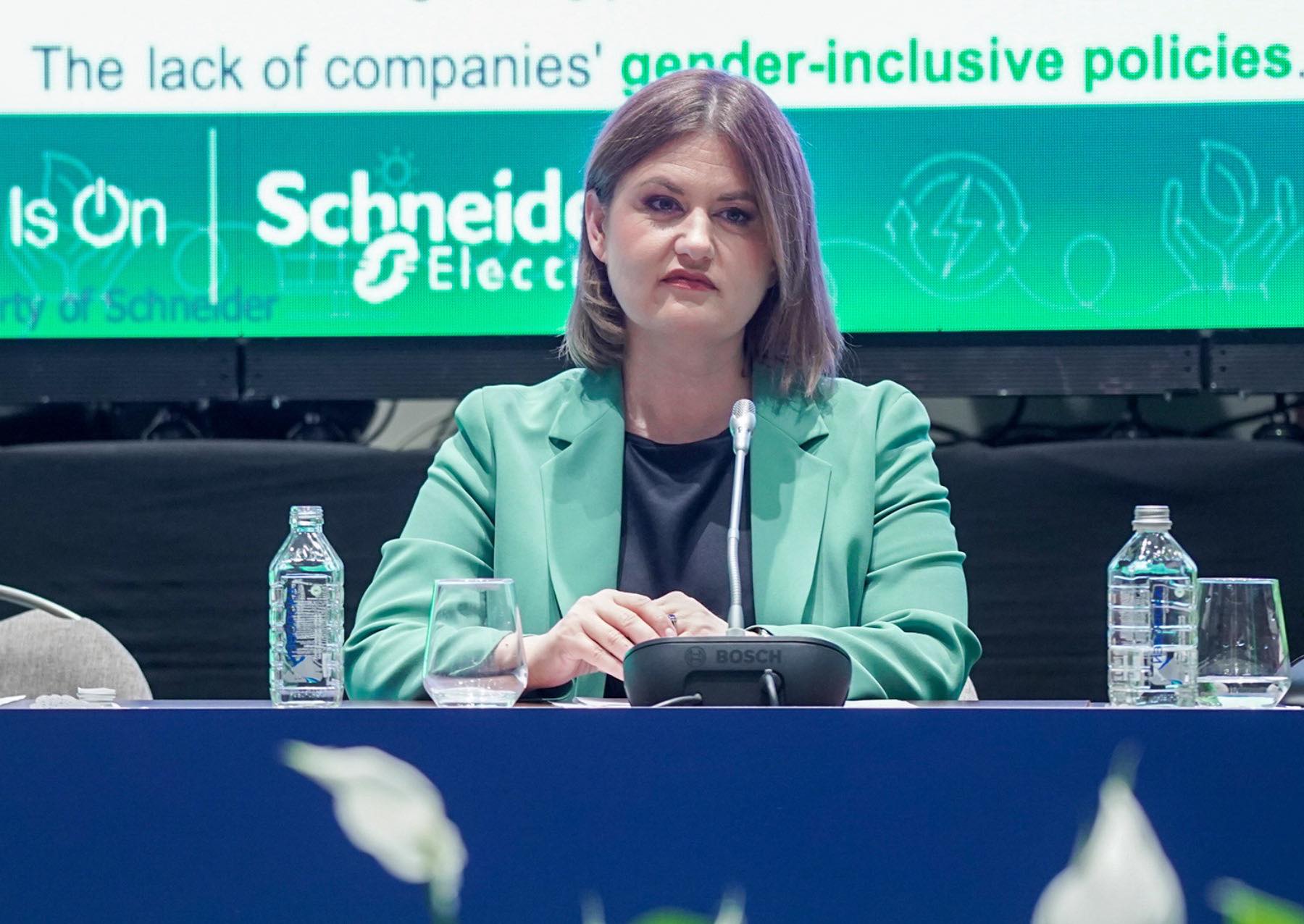An inclusive and just green energy transition is impossible without the equal participation of women. That was the message that echoed strongly at the “Women in Energy” session, held as part of the 14th International Forum on Energy and Sustainable Development (IFESD-14) in Skopje.
The minister of energy, mining and mineral resources, Sanja Bozhinovska, opened the session in an inspiring address with the message that without gender equality, there is no real progress in the energy sector.
“We are living in a crucial moment. The global energy transition is changing economies, industries and societies. And here, in the Western Balkans, we are not just followers of these changes — we are part of those leading them. North Macedonia is proud to be part of this transformation: we are investing in renewable energy, strengthening regional cooperation and ensuring that our transition is sustainable and just”, Bozhinovska said.
The minister stressed that this process will not be complete if it is not inclusive. “Progress that leaves women behind is not real progress. For too long, energy – from engineering to leadership – has been considered a ‘man’s world’. But we are proving every day that this is no longer the case. When women lead, energy becomes smarter, fairer and more human”, she emphasized. The data, as Bozhinovska reminded, confirms this:
“According to the International Renewable Energy Agency (IRENA), organizations with more women in leadership positions in the energy sector have up to 20% higher performance and innovation. The World Economic Forum shows that gender-diverse teams are more creative, more profitable and more resilient in crises. When women are empowered, the entire sector — and the entire society — wins”.
In one of the most emotional parts of the speech, the minister addressed young women directly:
“Don’t wait for permission to lead – take your place.
Don’t silence your ideas – speak them boldly.
Don’t doubt your strength – you are stronger than you think.
And to men – we need you too. Real progress happens when we stand shoulder to shoulder, as allies, working towards the same vision of equality and progress”.
In her speech, the minister also shared her personal experience:
“As a woman in energy, I know that the road has not always been easy. Many of us had to fight for our place at the table and prove that competence has no gender. But every obstacle we break down – paves the way for another woman to rise”.
She underlined that as minister she has set a clear mission – to change the perception that energy is a man’s world.
“I organize events and mentoring programs for female students from technical faculties, so that they can see that their future can be right here – in energy, technology and leadership. I work with women from mining and industry, whose results often remain invisible, but are crucial to our successes”.
Bozhinovska added that the Ministry of Energy today is among the most gender-balanced institutions in the country.
“We have more women than men and many of the key sectors are led by strong, professional and determined women. They are living proof that competence has no gender”, the minister said, adding that she is particularly proud to represent North Macedonia as an ambassador for WOBA – Women on Board Adria, a regional network that connects and supports women leaders in the Adriatic region.
“Through WOBA, I work to open doors for women on boards and in decision-making, to strengthen their leadership roles and to ensure that their voices are not only heard, but also valued. I believe that women deserve more – more opportunities, more recognition, more leadership. But I also believe that we must fight for it. Equality is not a favor, it is a right that we must demand, defend and build – together”.
Bozhinovska concluded her address with a quote from Margaret Thatcher:
“If you want something said – ask a man; if you want something done – ask a woman.” “Let’s be the women who do things – who lead, inspire and create an energy future where the light shines brighter for all”.
During the session, UNDP representative Anna Chernyshova reminded that women’s participation in the energy transition is still limited, mainly due to the structure of the labor market and sectoral segregation.
“Technical expertise and decision-making in the energy and climate change sectors are predominantly concentrated among men. This points to the need for targeted policies for increased gender equality in the green transition”, Chernyshova emphasized. She added that through the Green Finance Facility Program, UNDP prioritizes investments in women entrepreneurs and households where women are the income earners. Almost $8.5 million in investments in clean energy solutions have been supported so far. The panelists at the session concluded that the future of energy is inclusive, fair and visionary — with an equal place for all who drive it forward.
With regards,
Ministry of Energy, Mining and Mineral Resources


